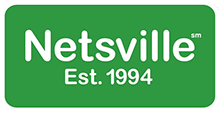First dubbed in 1999, the “Internet of things” refers to a network of physical “things” or devices such as smartphones, smart watches, televisions, and even automobiles that have the ability to connect to other devices. From refrigerators to golf clubs, more and more of our everyday devices are becoming Internet accessible providing us with instant invaluable information such as how to improve our golf swing or if our fridge is running low on beer – all info sent directly to your smartphone (or other “thing” for that matter) for maximum convenience.
In the last year, the Internet of things has become one of the leading ideologies adopted by technology companies around the world. An article in the The New York Times cites that the “McKinsey Global Institute predicts that the Internet of things…will in the year 2025 create between nearly $4 trillion to $11 trillion in economic benefits globally. That includes profits to device-makers, efficiencies, new businesses and savings to consumers from better-run products.”
Yet, this isn’t an amenity restricted solely to personal comfort and general handiness. The article expounds on how such technology can be beneficial to industries such as oil drilling and traffic management. “‘This puts a premium on predicting incidents based on data from a multitude of sources,’ said Michael Chui, one of the [McKinsey Global Institute] report’s authors. But it will be a challenge for companies to find ways to both organize and take advantage of that information.”
To clarify a with some examples of how the Internet of things already plays a strong role in everyday life, Rich Media has put together a snapshot of a few of its most prominent applications:

Source: Rich Media
Based in Rochester, New York, Netsville is an Internet Property Management company specializing in managing the Digital Marketing, Technical, and Business Solutions for our customers since 1994. For more information, please click here.






